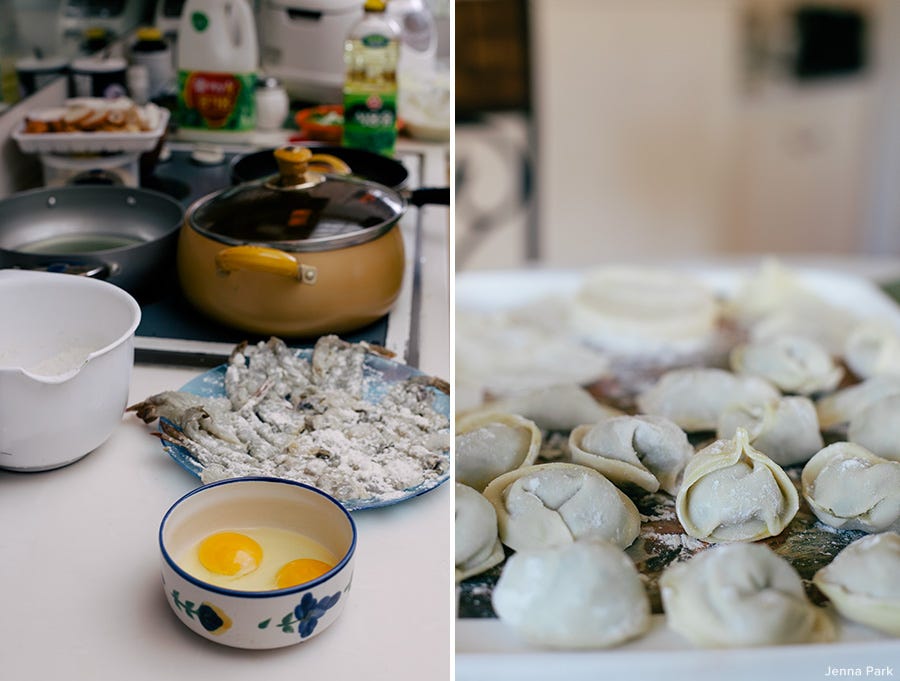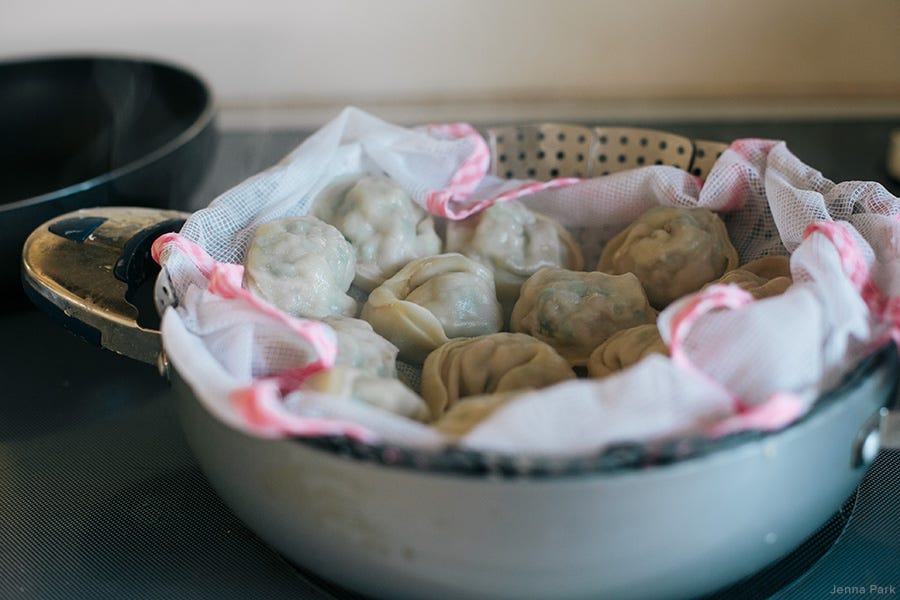Reverse gender roles in the kitchen
All the cooks in my life, of which I am not one. Lucking out in the lottery of spouses who love to cook.
Mark’s first instinct anywhere he goes is to head into the kitchen, and back when he was first introduced to my extended Korean family, that is exactly what he did. I don’t remember much about that day because it was more than 20 years ago at this point, but it was a big deal because no one had brought a white person to a family party before. For the women in my family, seeing a man in the kitchen was foreign at the time, and they would get flustered by his presence because they didn’t know what to do with him around.
“Why is he in the kitchen? Why isn’t he downstairs with everyone else?” my aunts would whisper among themselves in Korean as they watched him with amused, but puzzled expressions.
“Wah, look at him chop the vegetables,” they would remark to each other as he picked up a knife and expertly diced some onions into perfect half moons.
But eventually they would shoo him away, insisting that he was a guest, and banish him from food prep.
If I were to quantify the hours that he has spent in kitchens—as a restaurant pastry chef, a business owner, and the main cook of our family—I’m sure it would add up to more than half his lifetime. Mark’s entire identity revolves around cooking. So it was perfectly fitting that the very first time I ever met him was at the college deli where he worked. After I had quit art school and traveled around the country for 8 months, I transferred to a small college in the Pacific Northwest. I arrived in Washington the second day of January right after New Year’s, so the campus was still completely empty on winter break. I spent the first few days alone in my dorm, in a state I had never stepped foot in, and didn’t speak to a single soul until about the third day when I walked into the college deli and ordered a sandwich from the guy behind the counter. That deli worker would be Mark. Our interaction was brief and transactional, but he was first person I ever met or talked to on campus. Later the following week, I would see him again in my music classes.
Welcome to the “men’s club”
Being the oldest cousin in my immigrant family meant that I was paving the way for a lot of “firsts” for my generation. The first to go to college, the first to move away from NYC, and the first to marry outside of our race. It was a role that I didn’t ask for, but was mine, simply because of the luck of the draw in birth order. Aside from some strategic maneuvering of how and when to introduce Mark to my father, my extended family welcomed him immediately. His race was never an issue—but his gender when it came down to cooking was.






